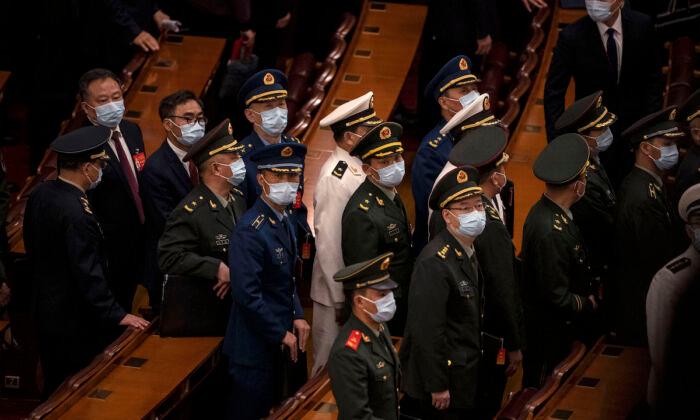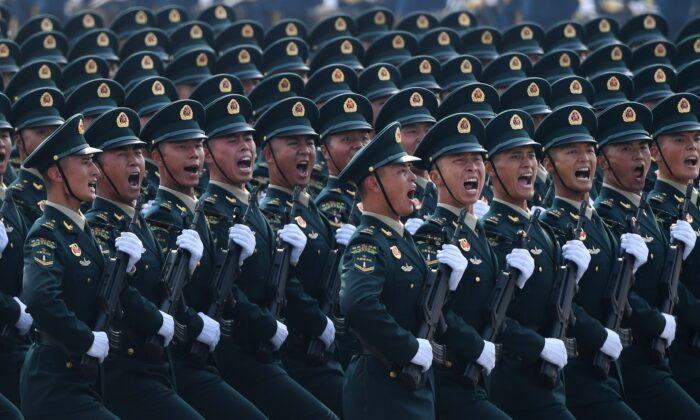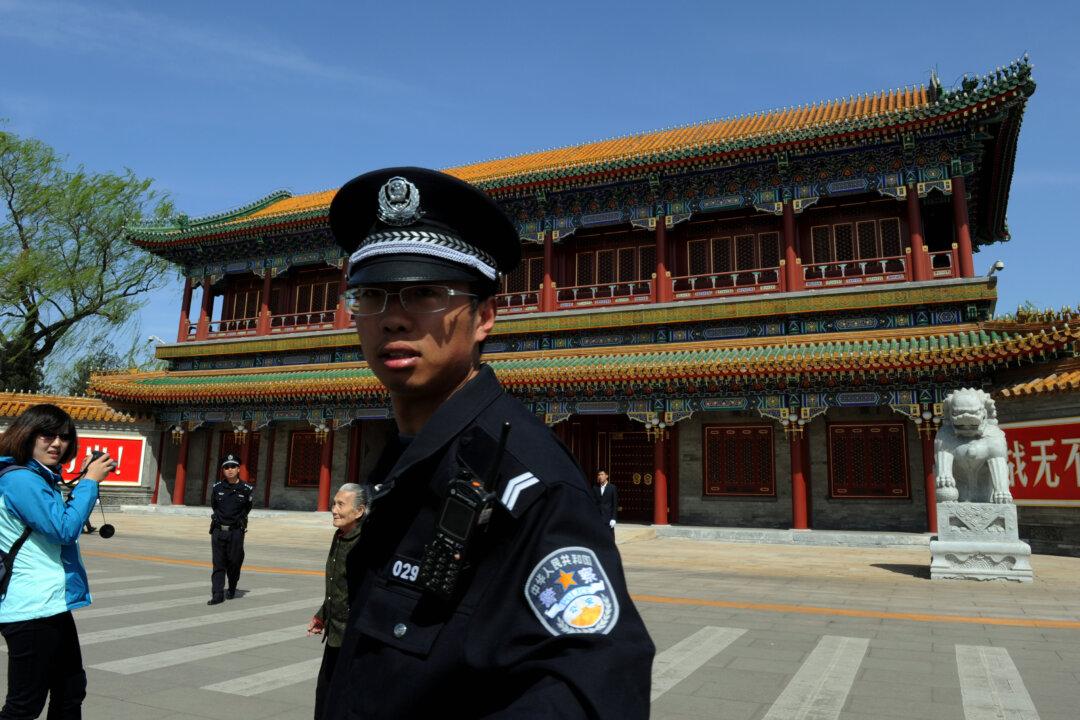The Chinese Communist Party (CCP) recently touted the need for a new pattern of war-oriented defense mobilization, with related offices popping up across the country. Experts say this indicates a rise in the party’s warmongering tendencies linked to the pressing crisis of regime collapse.
The article was published on Jan. 31, the same day on which Luohe city in central China’s Henan Province held a plaque ceremony for the local defense mobilization office.
Xi Prepares for War Amid CCP Ruling Crisis
Guo Jun, editor-in-chief of the Hong Kong Epoch Times, believes that “the deeper the crisis of communist collapse and the less stable the regime, the more likely it is to go to war.”The CCP is confronted with a huge crisis as the international community has been questioning its responsibility for the COVID pandemic and death toll in China, resulting from its extreme zero-COVID policy and sudden U-turn without sufficient medical preparation.
Amidst the crisis, the current CCP head Xi Jinping is placing nationwide preparedness and war mobilization as a priority.
Guo further pointed out that Xi’s excuse for securing his third term was to settle the so-called Taiwan reunification issue in the next 10 to 15 years, or between 2027 and 2032, a big deal for the CCP. In exchange, the party’s high echelons agreed to break the nearly half-century-old practice of setting a two-term ceiling for rulers.
The CCP supported Xi’s reelection, “thus, the Taiwan issue became a hallmark of Xi in the party,” Guo said.
But Xi is pushing himself into a tough corner, according to Guo’s analysis, this is partly due to too many military actions toward Taiwan inevitably leading to conflict with the U.S. military and several Western military or semi-military alliances.
On the other hand, if no military action is taken, Xi will not be able to explain himself to the party, Guo said.
“What does Xi do now? Xi has already spoken out and sung such a high tune [on Taiwan issue]. It’s not just a question of whether Xi can save face, but more critically, the rationality of his reelection will be questioned by the party.
“The Taiwan issue is a hole that Xi has dug for himself.”

Political and Intelligence Infiltration in Taiwan
The Australian jurist Yuan Hongbing told the Chinese edition of The Epoch Times on Jan. 29 that according to sources within the CCP, Xi has given Song Tao, director of the Taiwan Affairs Office of the Central Committee and the State Council, a secret mission to mobilize all the unification forces sowed by the CCP in Taiwan to prevent Lai Ching-te from being elected as the next president of Taiwan in 2023, hoping that Taiwan will surrender without a fight.If the unification effort fails, the CCP will invade Taiwan by force in 2025, i.e., through a so-called military struggle to solve the Taiwan issue, Yuan cited the sources as saying.
Song officially took over the helm of the Communist Party’s Taiwan Affairs Office on Dec. 28, 2022, in what was seen as a ground-breaking personnel arrangement.
The 67-year-old had served as secretary of the disciplinary committee of the Ministry of Foreign Affairs and deputy minister of the Ministry of Foreign Affairs, then deputy director of the Central Foreign Affairs Office and, in 2015 minister of the Foreign Liaison Department of the Central Committee (the liaison minister).
During his tenure as the liaison minister, Song made several trips to North Korea, Vietnam, Laos, and Cuba as Xi’s special envoy.
US–China War in 2025: US Warns
U.S. Air Force Mobility Command (AMC) Commander Mike Minihan recently predicted in a public memo that the United States and China could go to war in 2025.Minihan said that since both the Republic of China (Taiwan) and the United States will hold presidential elections in 2024 and they will be distracted, which will give the CCP the opportunity to act against Taiwan.
In August 2022, the CCP conducted unprecedented military exercises in the Taiwan Strait, which were seen as an excuse to prepare for a potential invasion of Taiwan with a visit to Taiwan by then-Speaker of the U.S. House of Representatives Nancy Pelosi (D-Calif.).





